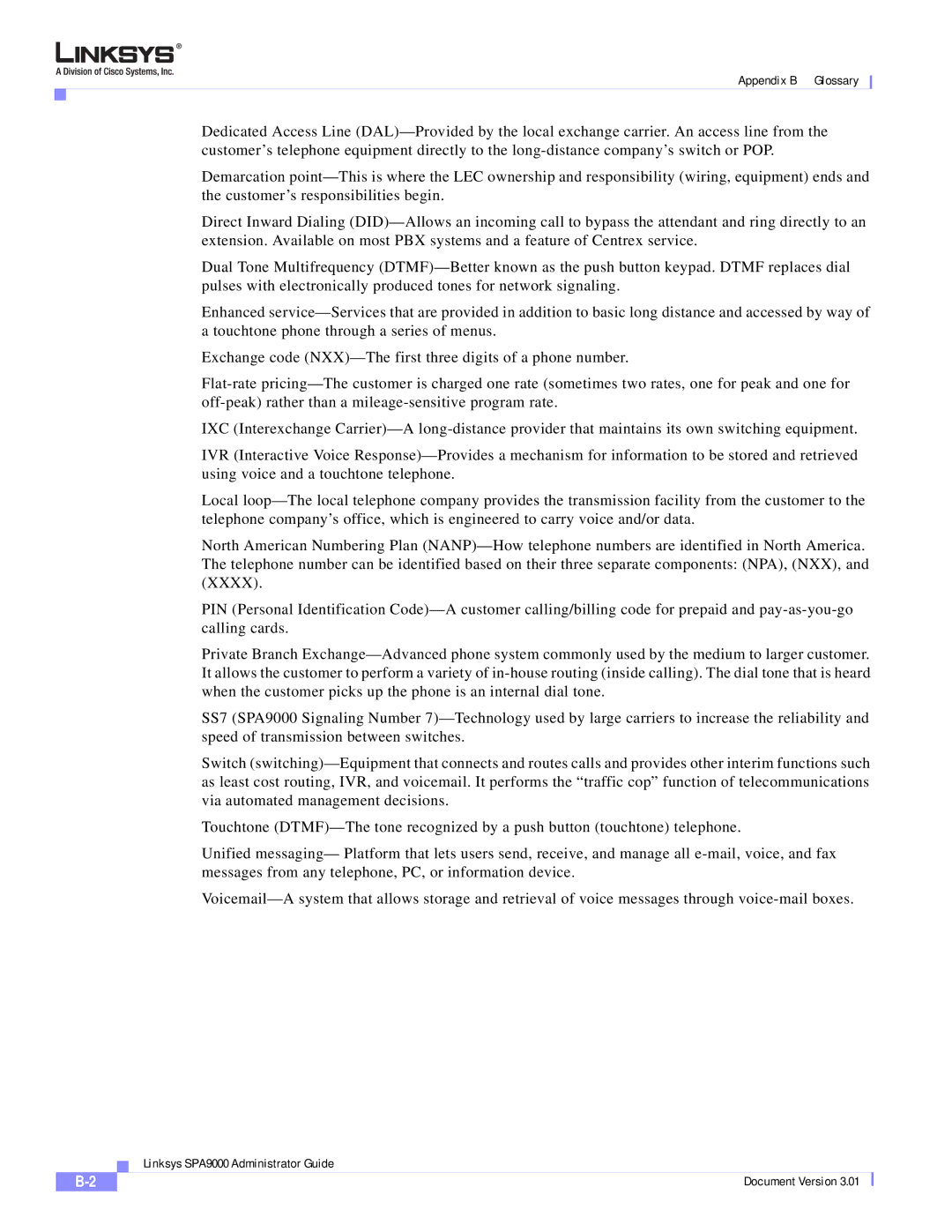Appendix B Glossary
Dedicated Access Line (DAL)—Provided by the local exchange carrier. An access line from the customer’s telephone equipment directly to the long-distance company’s switch or POP.
Demarcation point—This is where the LEC ownership and responsibility (wiring, equipment) ends and the customer’s responsibilities begin.
Direct Inward Dialing (DID)—Allows an incoming call to bypass the attendant and ring directly to an extension. Available on most PBX systems and a feature of Centrex service.
Dual Tone Multifrequency (DTMF)—Better known as the push button keypad. DTMF replaces dial pulses with electronically produced tones for network signaling.
Enhanced service—Services that are provided in addition to basic long distance and accessed by way of a touchtone phone through a series of menus.
Exchange code (NXX)—The first three digits of a phone number.
Flat-rate pricing—The customer is charged one rate (sometimes two rates, one for peak and one for off-peak) rather than a mileage-sensitive program rate.
IXC (Interexchange Carrier)—A long-distance provider that maintains its own switching equipment.
IVR (Interactive Voice Response)—Provides a mechanism for information to be stored and retrieved using voice and a touchtone telephone.
Local loop—The local telephone company provides the transmission facility from the customer to the telephone company’s office, which is engineered to carry voice and/or data.
North American Numbering Plan (NANP)—How telephone numbers are identified in North America. The telephone number can be identified based on their three separate components: (NPA), (NXX), and (XXXX).
PIN (Personal Identification Code)—A customer calling/billing code for prepaid and pay-as-you-go calling cards.
Private Branch Exchange—Advanced phone system commonly used by the medium to larger customer. It allows the customer to perform a variety of in-house routing (inside calling). The dial tone that is heard when the customer picks up the phone is an internal dial tone.
SS7 (SPA9000 Signaling Number 7)—Technology used by large carriers to increase the reliability and speed of transmission between switches.
Switch (switching)—Equipment that connects and routes calls and provides other interim functions such as least cost routing, IVR, and voicemail. It performs the “traffic cop” function of telecommunications via automated management decisions.
Touchtone (DTMF)—The tone recognized by a push button (touchtone) telephone.
Unified messaging— Platform that lets users send, receive, and manage all e-mail, voice, and fax messages from any telephone, PC, or information device.
Voicemail—A system that allows storage and retrieval of voice messages through voice-mail boxes.
| Linksys SPA9000 Administrator Guide |
B-2 | Document Version 3.01 |

